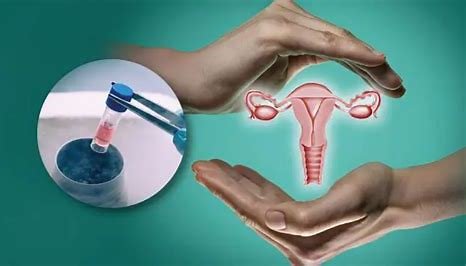APAC Fertility Experts Set New Gold Standard for Endometriosis Care and Fertility Preservation
01 May 2025 | Thursday | News

Image Source : Public Domain
Fertility specialists in the Asia Pacific region are bringing to fruition new standards of care for women and girls suffering from endometriosis and to help preserve the fertility of those with the debilitating condition.
They have finalised a rigorous consensus process to create a defined and auditable standard for networks of expertise for endometriosis treatment for the one in seven females of reproductive age living with the chronic pelvic pain and fertility risk from the disease.
It sets a gold standard of patient-centred care for sufferers of endometriosis and a similar condition called adenomyosis while considering the diversity of countries, economies, cultures and societies in the APAC region.
The experiences and views of patients living with endometriosis and adenomyosis have been incorporated in developing the consensus structure.
Endometriosis occurs when tissue similar to the inner lining of the uterus grows outside the uterus. It often affects the ovaries, fallopian tubes and the tissue lining the pelvis. Currently, there is no absolute preventive strategy or cure for the condition, but treatment options can help manage its chronic impacts.
The new approaches to endometriosis treatment will be outlined this week at the 2025 Congress of the Asia Pacific Initiative on Reproduction (ASPIRE) in Singapore.
The Congress from today (1 May) to Sunday has brought together over 2,000 scientists, clinicians, nurses and counsellors for a program that will help shape the future of fertility health care in the region and around the world.
New Zealand fertility specialist Professor Neil Johnson, an ASPIRE Board member and Past President of the World Endometriosis Society, has led the endometriosis consensus program with international specialists in the field.
"The topics covered and the way that they have been addressed set new world standards in care, and our hope is that they will influence policy makers and those responsible for health funding decisions," Professor Johnson explained.
"My aspiration for the networks of expertise consensus is that it presents what our APAC experts believe to be the optimal model of how complex multidisciplinary care in endometriosis should be best structured.
"Currently, there is a wide variation in the quality of multidisciplinary care for endometriosis. In many settings, care is provided without the key structures and enmeshment that is crucial for coordinated patient care.
"This consensus has the potential to become an accreditation gold standard. It may then be possible to assess the calibre of endometriosis care services across APAC to determine whether they meet the ASPIRE standard to be defined as a network of expertise.
"The consensus on fertility preservation in endometriosis is an issue that has come into sharp focus. In the past, repeated ovarian surgery for endometriosis sufferers has meant that some patients have ended up with extremely low ovarian reserve, which refers to the quantity of eggs remaining in the ovaries with egg quality often negatively affected by endometriosis.
"In some cases, ovarian reserve has become so low that it is very difficult for these patients to achieve a pregnancy either through natural conception or medically assisted reproduction. This is a tragic outcome for young women.
"Our consensus emphasises the need for awareness that endometriosis itself can compromise ovarian reserve along with the impact of ovarian surgery.
"It highlights the importance of blood testing for anti-mullerian hormone (AMH) levels and ovarian ultrasound for antral follicle count to accurately measure a patient's ovarian reserve.
"Timing of pregnancy is another important consideration. While it is a personal choice, the ability to conceive may be affected by a decision to delay attempts to become pregnant.
"Of prime importance is the provision of information on fertility preservation to endometriosis sufferers no later than in their twenties. This is vital for patients with severe (stage IV) endometriosis or those facing ovarian surgery.
"Fertility preservation is typically through egg freezing, although embryo freezing might be preferred by some couples in committed relationships.
"Ovarian tissue freezing may be considered in exceptional cases for endometriosis. Typically, this is an option for cancer patients facing potentially sterilising chemotherapy in the oncology setting. However, more research is needed to explore the role of ovarian tissue freezing for those with endometriosis.
"Finally, our consensus teams highlight the importance of integrating psychological support and overall fertility counselling as a critical aspect of care.
Most Read
- How Does GLP-1 Work?
- Innovations In Magnetic Resonance Imaging Introduced By United Imaging
- Management of Relapsed/Refractory Multiple Myeloma
- 2025 Drug Approvals, Decoded: What Every Biopharma Leader Needs to Know
- BioPharma Manufacturing Resilience: Lessons From Capacity Expansion and Supply Chain Resets from 2025
- APAC Biopharma Review 2025: Innovation, Investment, and Influence on the Global Stage
- Top 25 Biotech Innovations Redefining Health And Planet In 2025
- The New AI Gold Rush: Western Pharma’s Billion-Dollar Bet on Chinese Biotech
- Single-Use Systems Are Rewiring Biopharma Manufacturing
- The State of Biotech and Life Science Jobs in Asia Pacific – 2025
- Asia-Pacific Leads the Charge: Latest Global BioSupplier Technologies of 2025
- Invisible Threats, Visible Risks: How the Nitrosamine Crisis Reshaped Asia’s Pharmaceutical Quality Landscape
Bio Jobs
- Sanofi Turns The Page As Belén Garijo Steps In And Paul Hudson Steps Out
- Global Survey Reveals Nearly 40% of Employees Facing Fertility Challenges Consider Leaving Their Jobs
- BioMed X and AbbVie Begin Global Search for Bold Neuroscience Talent To Decode the Biology of Anhedonia
- Thermo Fisher Expands Bengaluru R&D Centre to Advance Antibody Innovation and Strengthen India’s Life Sciences Ecosystem
- Accord Plasma (Intas Group) Acquires Prothya Biosolutions to Expand Global Plasma Capabilities
- ACG Announces $200 Million Investment to Establish First U.S. Capsule Manufacturing Facility in Atlanta
- AstraZeneca Invests $4.5 Billion to Build Advanced Manufacturing Facility in Virginia, Expanding U.S. Medicine Production
News











